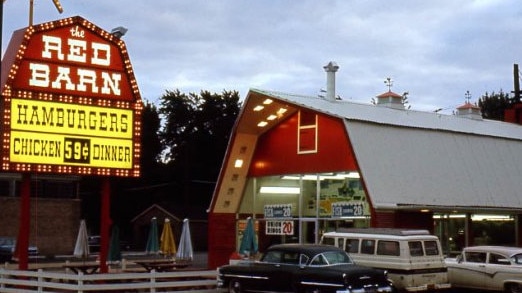US tariffs on Australian dairy-beef: How will the market respond?
Australian dairy beef often makes up the mince mix in American hamburgers. So how will US tariffs change things?
Tariffs whacked on Australian dairy-derived beef are unlikely to curb the American appetite for Aussie-sourced Big Mac patties, market analysts predict.
Meat and Livestock Australia’s tracking of the 90CL American market has 312.5 US cents per pound — a record high — and 13 per cent higher compared to 12 months ago, when it was tracking around 275.5 US cents per pound.
ANZ agribusiness insights executive director Michael Whitehead said the US fast food market was unlikely to curb its use of Australian-sourced beef.
He said US herd stocking constraints meant the American hospitality sector still needed to look abroad to service its quarter pounder demands.
“In tight economic times, what are you going to eat? An affordable hamburger or an expensive steak? Demand that hamburger-grade beef is going to increase due to the recent instability,” Mr Whitehead said.
“With a 10 per cent tariff, if everyone along the way absorbs two or so per cent including the burger seller, it’s not going to make much of a difference to the final price the American consumer pays.
“The 90CL market has been strong for some time and there’s a number of market forces there that underpin that strength.”
Mr Whitehead said the Trump administration’s tariff-happy approach had a number of unintended consequences that were set to counterbalance the government pricing barrier.
“One of the by-products of the tariffs that’s made things worse for the American domestic herd rebuilding itself, is the nervousness of the American market buying imports,” he said.
“American customers have gone back to buying domestically, that’s pushed up domestic prices for cattle and that’s reduced rate of the herd rebuild.”

When announcing his worldwide tariff initiative last week, US President Donald Trump mentioned Australia’s reluctance to buy US beef without regulatory constraints as a key reason for a 10 per cent import hurdle.
Dairy Farmers Victoria president Mark Billing said while beef tariffs may have some influence over the dairy-to-beef trade, there was a counterbalancing trend of the depreciating Australian dollar.
“It’s too early to determine how the beef trade is impacted. Everything seems up in the air after this latest 90-day tariff freeze as well as the ratcheting up with US-China tariffs,” Mr Billing said.
“Dairy-to-beef plays a big part in the Australian beef trade to the US, but then you have the Australian dollar dropping significantly because of the instability over the trade war — so whether one balances out the other is the question, but it’s new territory for markets around the world.”
Visiting Tokyo this week as a part of a trade delegation to Japan, Dairy Australia managing director David Nation echoed Mr Billing.
“It’s too early to assess. My sense of it we should overthink what’s going on here — there’ll be opportunities that come from this,” Mr Nation said.
“The structural situation in the US hasn’t changed because they’ve introduced tariffs. The United States has a very large appetite for beef products that isn’t filled by domestic beef production – they will still need internationally-sourced beef.”





